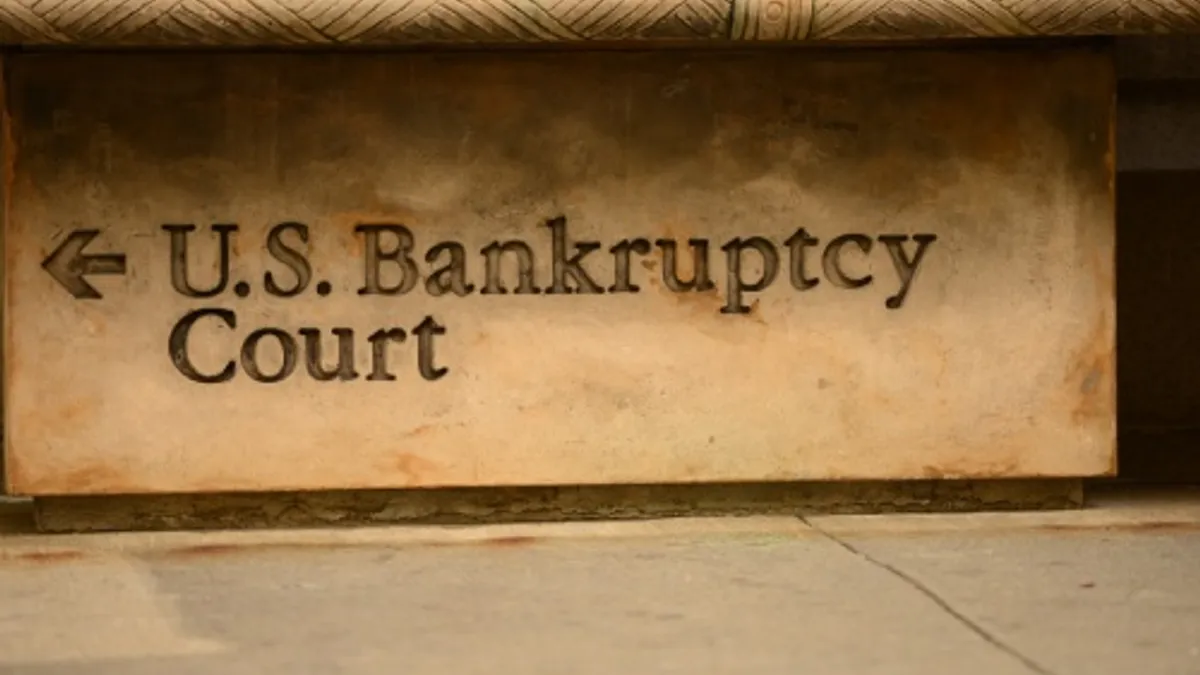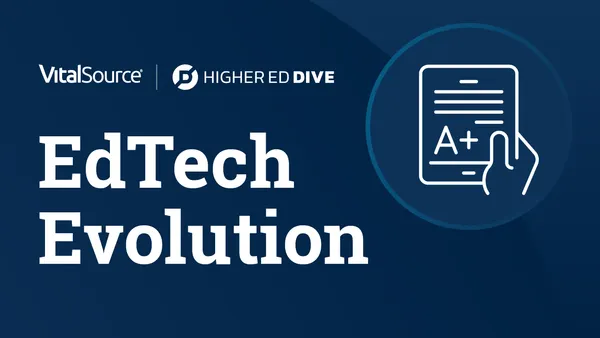Frequently ranked as one of the nation's top business schools by U.S. News, the Wharton School of the University of Pennsylvania also leads in another area: online learning.
An early adopter in the space among its peers, Wharton was among the first to embrace MOOCs upon Coursera's launch in 2012. A Wharton Business Foundations course track is among the "Specializations" offered on the platform, with a paid certificate and capstone project — which applies knowledge gained to a problem presented by Snapdeal or Shazam — available to students.
"The future’s coming, and we want to help shape it," said Anne Trumbore, director of Wharton's online learning initiatives. "That’s really one of the reason why we have jumped online and jumped online very early. Certainly, we want to bring what we’ve learned in online ed back to enhance the experience of the students in our degree programs. We don’t know what that looks like yet, but this is not separate from our core mission."
We recently caught up with Trumbore to get more insight on Wharton's approach to taking business courses and programs online, how it got into the MOOC game on Coursera, and whether there are any additional incentives for students who enroll after completing a Coursera Specialization.
EDUCATION DIVE: What has Wharton’s general strategy been as far as taking business school courses and programs online, and how does that compare to what other business schools are doing?
ANNE TRUMBORE: Well, I think that Wharton was an extremely early adopter of this space. A course from a Wharton professor, Gamification, was one of the first MOOCs ever on the Coursera platform in 2012. So we were really first in an experimental medium. Actually, Operations, too, from Christian Terwiesch. Wharton professors were among the first putting courses up in the summer of 2012. Because of the massive response to those courses—they were extremely popular—the decision was made to move more courses from Wharton online from instructors who were interested.
Basically, we have just been responding to demand. We’ve had well over a million enrollees just in Wharton courses, and a great number of students have completed the courses and received statements of accomplishment and verified certificates, so we understand that there’s not only a great hunger for this kind of business knowledge. People are really using it to make their lives better, and so we’d like to serve that. And this dovetails with some of our objectives. One of them really is this idea of social impact and expanding Wharton education to the world.
Do you think there are any novel difficulties in taking a business program online compared to any other fields?
AT: Not compared to any other fields. I think that business courses online share benefits and challenges, just as other subjects do. Certainly a poetry course has aspects of community that are normally present in the on-campus classroom that need to somehow be replicated or reimagined for online. And in the same way, some business school classes rely on a community that needs to be reimagined for online. But is there anything that’s specific to business? I wouldn’t say so. I think that the challenges we face are challenges that other subjects face as well.
What led to the decision to go with Coursera as the MOOC provider?
AT: When Coursera began in the spring of 2012, it launched in partnership with four universities. They were Stanford, University of Pennsylvania, Princeton, and Michigan. So Penn was an initial partner in Coursera, and the edX platform wasn’t even really in existence at that time and at that point was just a Harvard-MIT project. The operations course and gamification course from Wharton profs launched in summer 2012.
How did the Specializations partnerships with Shazam and Snapdeal come about, and what do they bring to the table for the students in the courses?
AT: We know that students learn better when they can apply their knowledge. In fact, that’s one of the hallmarks of the Wharton education is that you can apply your knowledge to real business problems. We have a number of on-campus programs in which students put their skills to work. Coursera had piloted a few Specializations with businesses and enterprises who provided a challenge so that students could do project-based learning after they completed their courses. This was very attractive to us because it aligned so closely with the idea of Wharton as a place where you can apply your knowledge.
So that’s how we decided to move ahead with the capstone project. We chose Snapdeal and Shazam because we wanted to keep it in the Wharton family, so we were looking for companies that were either Wharton-founded or Wharton-governed. There was a long list of companies, and I just reached out to a few of them. It just kind of came together. We had a fairly compressed timeframe. Kunal Bahl, who is the founder of Snapdeal, was very interested right away, and so was Rich [Riley, CEO] from Shazam. They understood the objective and were happy to participate.
With the Specialization right now, are students who complete that and perhaps eventually enroll at Wharton able to get any sort of credit for that? If not, is that something you’re thinking about?
AT: They will not be able to get course credit once they enroll. Students who finish in the top 50 students in the specialization, should they decide to apply to Wharton, will have their application fee waived. And if they matriculate at Wharton, they will get a $20,000 scholarship. But they won’t get course credit.
Would you like to see more education news like this in your inbox on a daily basis? Subscribe to our Education Dive email newsletter! You may also want to read Education Dive's look at higher ed's love-hate relationship with rankings.





















